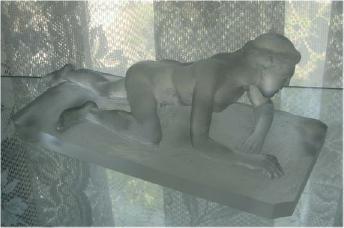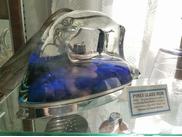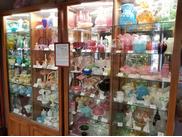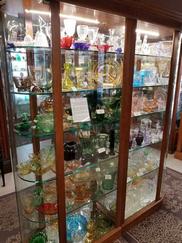Making a Donation
to the Historical Glass Museum
The Historical Glass Museum relies on the generosity of our members and supporters to fund daily operations and pay for ongoing projects. Donations are welcome, whether they be in the form of cash, glass, glass-related items, office supplies, real property or items which may be sold in our Gift Shop at the Museum. However, we may respectfully pass on a donation if we are overstocked and have no space to store it.
We also welcome donations of your time, in the form of volunteering for the various tasks related to the museum (cleaning glass and cases, serving as a docent, becoming a board member, etc.).
If you would like to donate any of the above items, Contact Us.
A word about donations of glass
The Museum accepts donations of American-made glass, and we can divide these donations into three distinct categories:
- Items for the Museum permanent collection.
- Items specifically designated to be sold in the Museum Gift shop to support the Museum's ongoing expenses.
- Duplicate or excess items, also to be sold in the Gift Shop.
PayPal Donations
The Museum is now set up to accept donations via PayPal®. You can select one of the preset amounts or specify your own amount. If you would like your donation to be a monthly amount, select the "monthly" option at the top of the form. You will receive a receipt via email. Here is the link:

Income Tax Considerations
The Historical Glass Museum is certified by the IRS as a non-profit 501(c)(3) organization, and therefore, donations to the Museum are tax-deductible. You should consult with your tax advisor to be certain in your own situation.
We can accept checks made payable to the Historical Glass Museum, and you can designate the funds to be credited to the Restoration Fund or to the Current Operating Fund. You may also designate that the funds are donated "in Memory of" or "in Honor of" a specific person or persons, and we will acknowledge the designation in our newsletter.
Provident Bank
For this past year, Provident Bank presented us with a check for $172.68. Participants who bank at Provident Bank (available throughout Riverside and San Bernardino counties) may choose to "link" their accounts to the HGM. Based on the confidential linkages of depositors' accounts, Provident makes a yearly donation to the HGM. This is their way of paying back to the community. The donation is solely funded by Provident and does not come from the depositors' accounts.
Scarce Steuben donation
 The photo (at right) shows the donation of Frederick Carder's rare Steuben Cire Perdue glass. This piece is an especially choice one as it is of a human figure. Carder experimented with Cire Perdue and Diatreta glasses from the later 1940s through the 1950s. These two types of glass developed and perfected by Carder were perhaps his greatest
contributions to American art glass making. It was also these
types of glass and the processes in making them that make
Frederick Carder an early and important part of the American Studio Glass Movement.
The photo (at right) shows the donation of Frederick Carder's rare Steuben Cire Perdue glass. This piece is an especially choice one as it is of a human figure. Carder experimented with Cire Perdue and Diatreta glasses from the later 1940s through the 1950s. These two types of glass developed and perfected by Carder were perhaps his greatest
contributions to American art glass making. It was also these
types of glass and the processes in making them that make
Frederick Carder an early and important part of the American Studio Glass Movement.
There are at least two additional elements of these glasses and their Creator, Frederick Carder, that make them so rare and valuable. First, is the time period during which Carder created them, the late 1940s and the 1950s. Frederick Carder was born in 1863 and lived until 1953. This means these two great accomplishments were achieved while Carder was in his 70s and 80s. This also means that these developments were carried on by Carder after he had left Steuben and had become Art Director of Corning Glass Works.
The Museum is honored by this extraordinary donation by Dusty Ketchum, on behalf of the estate of Marshall Ketchum.



